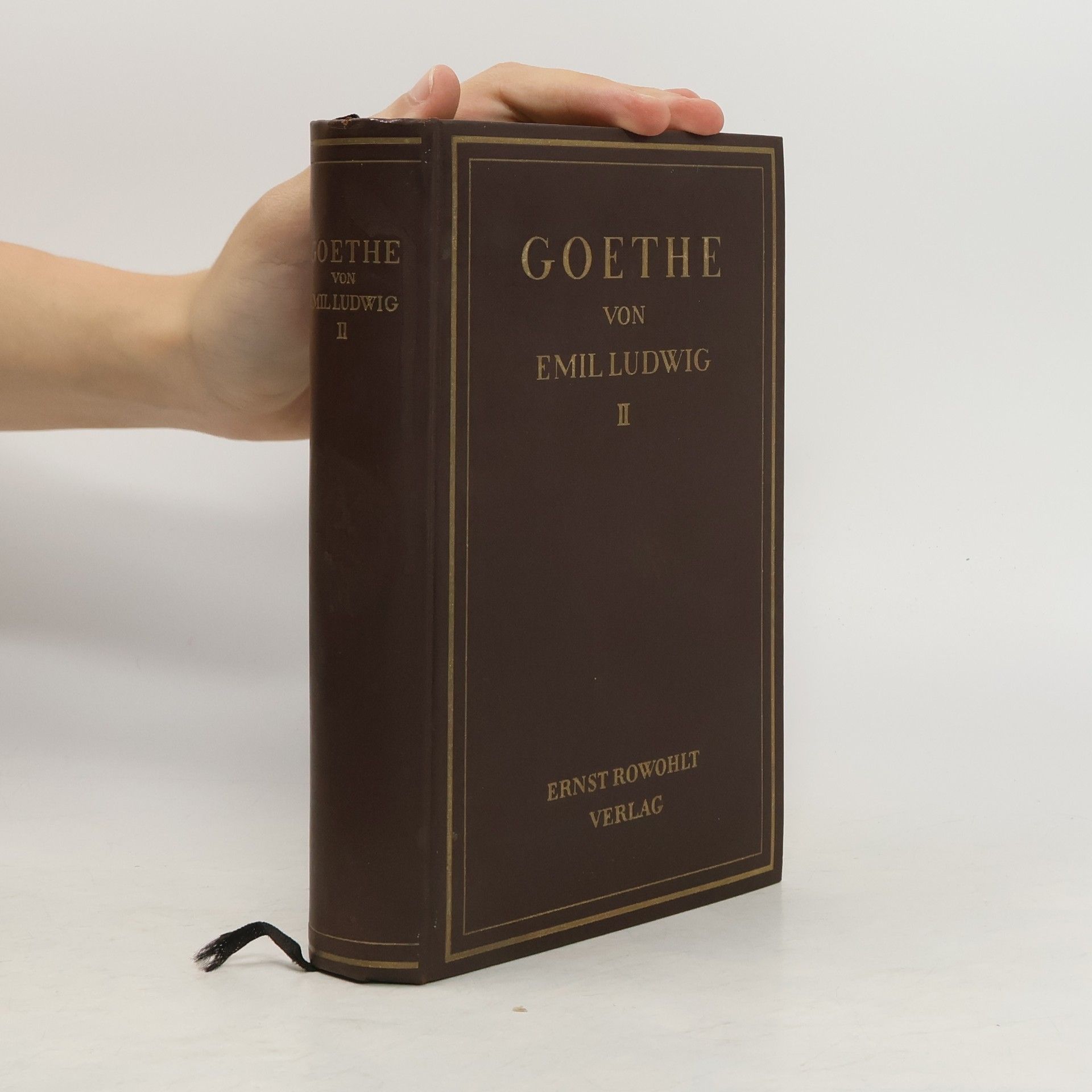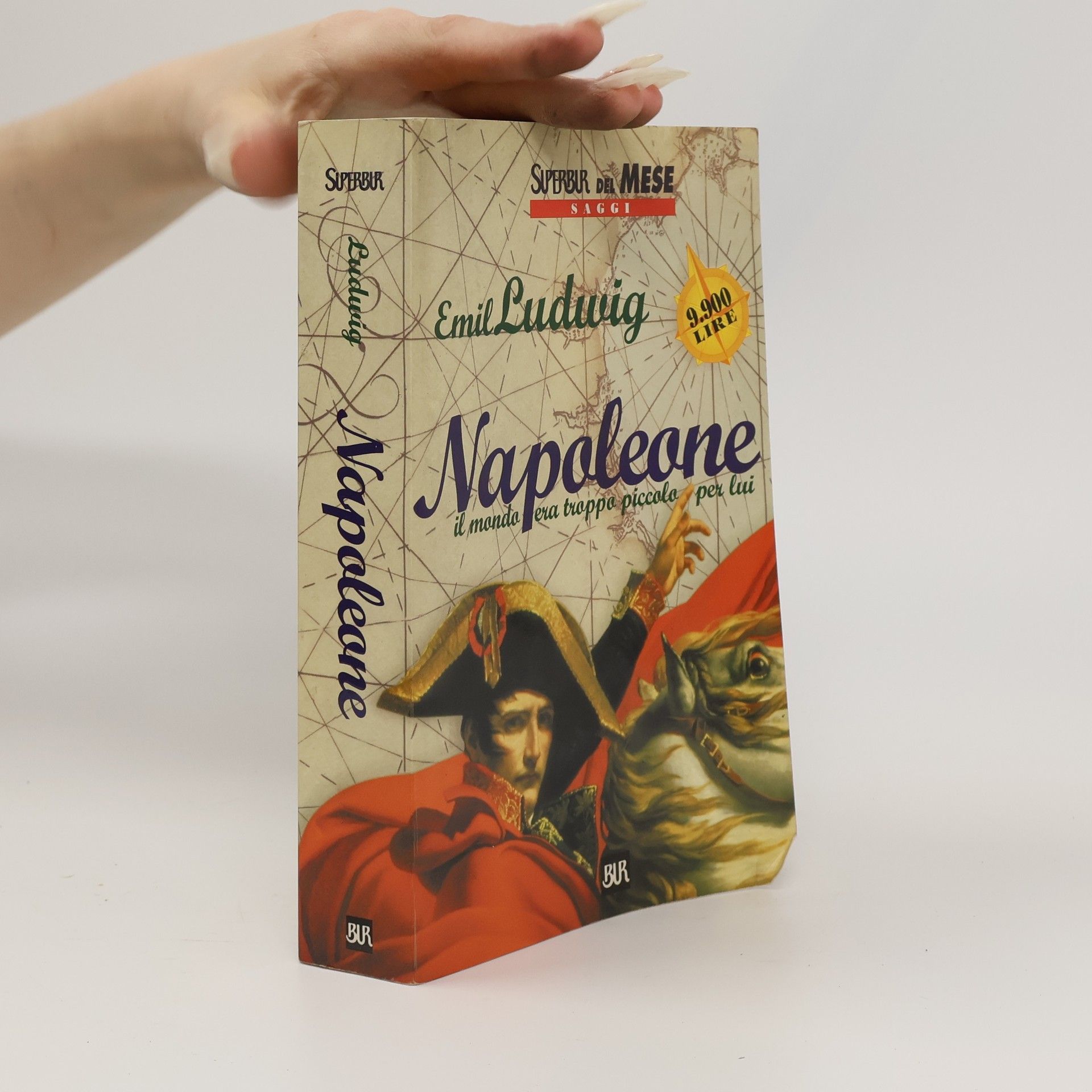Superbur: Napoleone
- 498pagine
- 18 ore di lettura
Emil Ludwig raggiunse fama internazionale per le sue biografie avvincenti, che fondevano magistralmente fatti storici con intuizioni psicologiche e un tocco narrativo di grande effetto. Le sue opere, spesso nate da incontri diretti con figure storiche di spicco, offrivano ai lettori profonde esplorazioni della natura umana e delle sue motivazioni. Il talento distintivo di Ludwig risiedeva nella sua capacità di dare vita a personaggi complessi e alle loro epoche con vividezza e profondità, assicurando che i suoi libri fossero ampiamente tradotti e celebrati.






Le Grandi Biografie
Otto von Bismarck was more than a politician and a leader: he was the single driving force that turned the disparate states of Germany into one cohesive empire. He then went on to lead Germany and the rest of Europe into an age of political peace that lasted from 1871 until the outbreak of World War I. Under his influence, Germany thrived. Bismarck’s use of statesmanship to fight for the interests of his country was legendary. As one of the most influential and powerful individuals in his country’s history, Bismarck became a symbol of leadership and pride for German nationalists. The historical conception of him was as the “Iron Chancellor,” an unbending and untouchable figure. In his landmark biography of the man of “blood and iron,” Emil Ludwig rejects the pedestal that history has placed Bismarck upon, and instead seeks a historical and psychological understanding of the chancellor “as he really was, and not as distorted by worship.” Bismarck was not merely a hard and calculating statesman, but a man ruled by pride, courage, and hatred. To fully comprehend the actions this enigmatic and important character, we must first understand his feelings, his motivations, and his private life. Beginning with Bismarck’s childhood and delving more fully into his early life than any other work, Ludwig’s landmark volume is invaluable in understanding the forces behind one of the most influential men in modern history.
Set in the Palazzo di Venezia during March and April 1932, this book captures a series of candid conversations between the author and Mussolini, conducted in Italian and recorded in German. The dialogues reflect Mussolini's thoughts, carefully checked by him, and include anecdotes from Roman life. The author acknowledges influences from Margherita Sarfatti's biography while focusing solely on the direct exchanges, providing an intimate glimpse into the mind of the Italian leader during a pivotal historical period.
Die künstlerische Betrachtung von Mussolini steht im Mittelpunkt dieser Analyse, die durch die Perspektive eines parteilosen Beobachters geprägt ist. Der Autor reflektiert über seine Rolle als Ausländer und die unterschiedlichen Sichtweisen, die er als Franzose und Deutscher auf bedeutende Persönlichkeiten wie Chateaubriand und Goethe gehabt hätte. Emil Ludwig beleuchtet die Faszination für Mussolini jenseits politischer Zugehörigkeiten und stellt die außergewöhnliche Persönlichkeit in den Vordergrund.
Obsáhlé dílo o životě a vládě Viléma II., psané jako jeho paměti z doby sjednocení Německa v 19. století
Podtitul: Rytíř slávy a svobody. Životní příběh Simona Bolívara a osvobozovacích bojů zemí Latinské Ameriky.